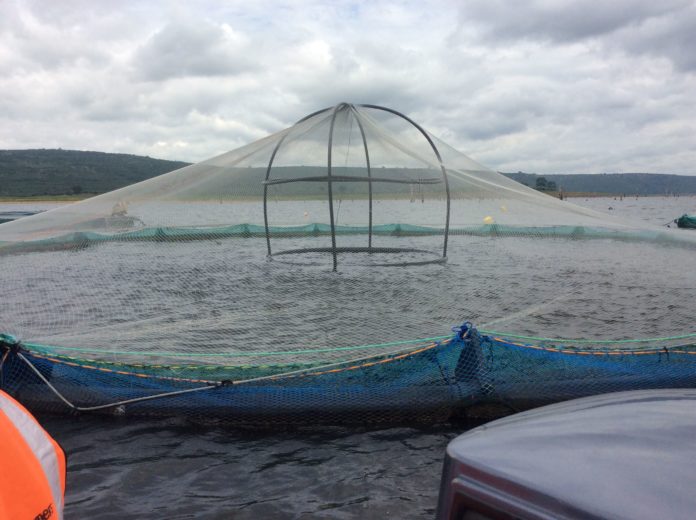Globally, the aquaculture industry has seen remarkable development through increase fish production, as a result of the increasing demand for fish products.
Ghana’s aquaculture sector employs about 58, 000 people or 0.22% of the total population. Direct fishing contribution to Ghana’s economy is significant, accounting for 12% of the agricultural GDP and 10% working force.
It is no doubt that Ghana’s aquaculture sector has seen significant growth in recent years due to the government / World Bank-funded Fisheries programmes through the Ministry of Fisheries and Aquaculture Development, yet there are some challenges that are impeding the growth and development since, 2017.
Upon this, the Chamber of Aquaculture Ghana is calling on the government, Stakeholders and the development partners in the Aquaculture Industry to support to mitigate the challenges been faced by the sector.
According to Jacob Adzikah, CEO of Chamber of Aquaculture Ghana, the Chamber launched a survey called Industry Needs Assessment Survey, which was made up of 51 major stakeholders during the first quarter of this year to evaluate the key challenges facing the sustainable development of Ghana’s Aquaculture industry.
“The responses collected revealed that despite the growing expansion of the aquaculture industry, the stakeholders in the industry are also faced with some challenges which must be brought to the attention of the relevant state agencies responsible and other stakeholders for the necessary actions to be taken”, he said.
The survey was conducted on value chain actors such as the fish farmers, fishmongers, aquaculture inputs sellers; fish feed producers, fish health experts, and aquaculture industry regulators.
At the end of the survey, the major challenges identified by the stakeholders are high rate of diseases affecting the fishes, high cost of fish feed, lack of credit facilities, high cost of permit fees, and inadequate aquaculture extension services.
The responsibility of the Chamber of Aquaculture Ghana, industry players, academia, and regulators is to promote sustainable aquaculture practices. Therefore, the Chamber in consultation with aquaculture experts and other stakeholders has provided some key recommendations that could help in developing a sustainable aquaculture industry and calling on the government to increase its support for the Aquaculture Industry by considering the recommendations provided.
RECOMMENDATIONS.
Regulators must ensure biosecurity protocols are observed at country entry points and in-country fish movement.
Farmers should engage the services of fish health experts to provide training in areas such as disease prevention and control on the farm.
The government could assist the aquaculture industry by providing subsidies and tax reliefs or exemptions on feed components to reduce production costs.
Industry players should advocate for the establishment of aquaculture fund by the government. This will enable businesses operating in the aquaculture industry to have access to low-interest loans to boost fish production.
The cost of acquiring the requisite permits could be reduced by the state agencies or even waived to enable all businesses operating in the aquaculture industry to legitimize their activities. Moreover, the government could establish a one-stop-shop for the processing of permits instead of the current fragmented process. If all businesses in the industry are properly documented, that will help with tax collection, monitoring, etc.
The stakeholders in the aquaculture industry must increase collaboration with the Ministry of Fisheries and Aquaculture Development, which is mandated by law to provide aquaculture extension services to farmers throughout the country.








